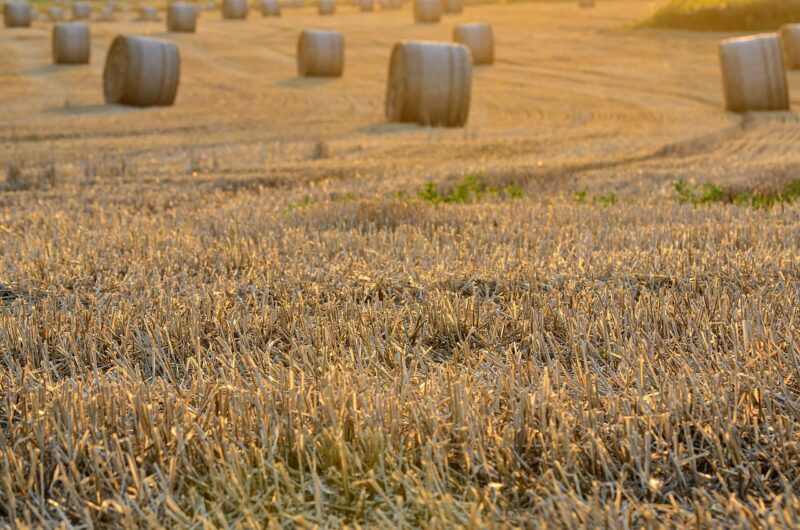How Festivals Around the World Celebrate the Changing Seasons
November 16, 2024

As the earth awakens from its winter slumber, the arrival of spring brings a sense of renewal and exuberance. Around the globe, cultures have developed vibrant festivals to honor the changing seasons and the life they bring. These festivals are not just celebrations; they embody history, traditions, and the unique connection that diverse communities have with nature.
1. The Significance of Seasonal Festivals
Festivals celebrating the changing seasons are a testament to humanity’s eternal relationship with nature. The transition between winter, spring, summer, and autumn reflects not just climatic changes but symbolizes the ebb and flow of life itself. Here are some symbolic meanings behind seasonal festivals:
- Renewal and Rebirth: Spring festivals often herald the return of life, with flowers blooming and animals awakening from hibernation.
- Harvest and Gratitude: Autumn festivals celebrate the bounty of crops and give thanks for sustenance during the harsh winter months.
- Reflection and Transition: Winter festivals often provide a time to reflect on the past year and prepare for the coming challenges.
- Celebration of Life: Summer is typically embraced with joyous affairs that symbolize fun, community, and leisure in the sun.
Each season’s festivities highlight cultural values, offer hope, and foster community spirit across the globe.
2. Spring Festivals: Welcoming the New Life
As winter melts away, spring festivals spring up to celebrate rebirth and growth. Some notable spring festivals include:
Holi (India):
Holi, known as the Festival of Colors, is celebrated with zeal and enthusiasm across India. It marks the arrival of spring and the victory of good over evil. People throw vibrant colored powders at each other, dance, and enjoy festive foods. The celebration fosters unity and joy.
Nowruz (Persian New Year):
This ancient festival, celebrated mainly in Iran and among Persian communities, occurs on the vernal equinox. It symbolizes renewal and the beginning of the year. Families clean their homes, represent new life with seven symbolic items on the Haft-Seen table, and gather to feast while exchanging gifts.
Songkran (Thailand):
Songkran marks the Thai New Year and is celebrated with massive water fights symbolizing purification and the washing away of sins. Participants splash water on each other to represent the cleansing of the past and the welcome of a prosperous new year.
3. Summer Festivals: Embracing the Warmth
Summer is a season of abundance and joy. Here are some festivals that celebrate this sunny season:
La Tomatina (Spain):
Held annually in Buñol, La Tomatina invites participants to engage in a massive tomato fight. Originating from a local festival in the 1940s, it celebrates the arrival of summer and encourages community participation and fun.
Midsummer (Sweden):
Midsummer is a traditional Swedish celebration marking the summer solstice. Families gather to decorate maypoles with flowers, enjoy a feast of herring, potatoes, and strawberries, and dance around the maypole, expressing joy for the season’s bounty and light.
Carnival (Brazil):
Carnival in Rio de Janeiro is perhaps the most renowned summer festival worldwide. It encompasses street parties, parades with flashy floats, and samba dancing, symbolizing freedom, joy, and celebration just before the Christian season of Lent.
4. Autumn Festivals: The Harvest Blessings
Autumn brings in the harvest and is celebrated through several festivals, emphasizing gratitude for the earth’s bounty:
Thanksgiving (United States):
Thanksgiving originated as a harvest festival in the early colonial period, where families gather to express gratitude for the year’s abundance. Traditional meals often include turkey, pumpkin pie, and fresh vegetables, symbolizing the gratitude for food before winter.
Oktoberfest (Germany):
Celebrated in Munich, Oktoberfest is the world’s largest folk festival and is a celebration of Bavarian culture and beer. It runs for 16 days and attracts millions, celebrating harvest season, with traditional food, music, and merriment.
Diwali (India):
Although Diwali falls in late autumn, it signifies the victory of light over darkness. Homes are lit with diyas (oil lamps), and families participate in prayers and festivities, symbolizing new beginnings, prosperity, and gratitude for the harvest.
5. Winter Festivals: Reflection and Transition
Winter festivals often revolve around reflection, rest, and the hope of renewal:
Christmas (Christian communities worldwide):
Christmas celebrates the birth of Jesus and includes traditions that emphasize togetherness, joy, and giving. Families exchange gifts, decorate Christmas trees, and enjoy feasts. This season also incorporates elements of winter solstice celebrations, reflecting hope during the darkest time of the year.
Hanukkah (Jewish communities):
Hanukkah, or the Festival of Lights, celebrates the miracle of lights in the Second Temple. Families light a menorah, sing, and share traditional foods, embodying themes of resilience and hope.
Beltane (Celtic regions):
Beltane marks the beginning of summer in the Celtic calendar and is celebrated on May 1. Traditionally, it involved bonfires to protect cattle and promote fertility. Today, it encompasses various modern celebratory elements reflecting on nature’s cyclical journey.
Conclusion
Seasonal festivals are essential threads in the world’s cultural tapestry, celebrating the changing seasons and offering a chance for communities to come together. They allow us to reflect on our relationship with nature, instill hope for renewal, and find joy in our shared humanity.
As we now live in a globalized world where cultural exchanges flourish, these festivals continue to grow in their significance, offering people a chance to reconnect with traditions, foster unity, and celebrate the beauty of life across seasons. Whether you join in a colorful Holi celebration or savor a Thanksgiving feast, these festivals remind us of our shared experiences and the rhythms of nature that bind us together.







